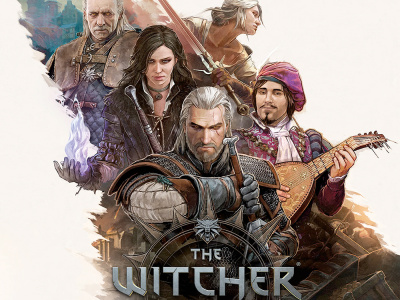Rolling for Initiative is a weekly column by Scott Thorne, PhD, owner of Castle Perilous Games & Books in Carbondale, Illinois and instructor in marketing at Southeast Missouri State University. This week, Thorne looks at principles of influence and how they apply to selling games.
This week, I have been reading over Dr. Robert Cialdini’s book on influence. The major focus of his work is that there are six major "principles of persuasion" and you get people to do things (including buying a game), though employing these principles, which are as follows:
Reciprocity. People feel indebted to you when you give them a gift or do something for them. It is not a coincidence that when you go to a warehouse store or supermarket, the sampling stations always have the product nearby. Similarly, offering a free print-and-play game from a publisher’s website increases the likelihood that someone who prints out the game will purchase a product from the publisher. Similarly, the promo items included in issues of Game Trade Monthly increase the likelihood that the recipients will look at the game they promote. The key is the publisher has to reach out to the consumer when offering the item. Proactivity, rather than reactive behavior, wins the day.
Social Proof. People look to other people if they are uncertain about a course of action. Other people performing that course of action give guidance that the action is the correct choice. Hence a high Hotness rating on BoardGameGeek or seeing every other person carrying a copy of a game at Origins indicates it must be a good game, else why would everyone else want it?
Consistency. If you follow through on agreements and do what you say you are going to do, people are more likely to agree when you ask them to do things. If you say that enforcing street dates are important, but apparently do nothing to enforce them, customers will doubt your statements in other areas as well. Similarly, writing down or publicly committing to doing something increases the likelihood that you will follow through.
Liking. Simply put, if people know and like you and/or your company, they will prefer to say "yes" to you. I can think of several distributors with which I have opened an account simply due to the company hiring someone I knew and liked to work there. Similarly, customers are more likely to purchase a game from a company or designer whom they have purchased from in the past. If you are a new company with no track record, why would I chose your product over one from a company with which I am familiar?
Authority. People want to follow the lead of experts. This is one reason for the "TableTop Effect." If you have your own webseries or podcast, you are perceived as having some expertise or authority in that area and people will more likely pay attention to you and what you have to say. This authority can even come from titles, such as chief marketing officer or director of fun, or appearance. Wearing a lab coat and draping a stethoscope around one’s neck adds credibility when talking about medicine and health care. Yes, "you can’t judge a book by its cover" but it’s the cover that gets people to pay attention to you in the first place.
Scarcity. I have discussed supply and demand before and it still applies. The more uncommon something is, the more people want it. Scythe, Gloomhaven, Star Wars Destiny, the Final Fantasy TCG, all are scarce, which currently drives high demand (and prices) for them. Consumers are much more sensitive to possible losses than possible gains, so a "limited quantities" appeal works well in persuading consumers to purchase now rather than waiting. Of course, most companies would rather have sufficient product to supply demand rather than rely on scarcity as a persuasion tactic.
Are these guaranteed to persuade customers? Of course not as there is always the "human factor" to consider. However, understanding consumer behaviors always helps when presenting your product to the market.
The opinions expressed in this column are solely those of the writer, and do not necessarily reflect the views of the editorial staff of ICv2.com.

Column by Scott Thorne
Posted by Scott Thorne on April 24, 2017 @ 12:09 am CT
MORE GAMES
'A Villainous Halloween' In-Store Event
August 15, 2025
Wizards of the Coast announced A Villainous Halloween , a new Magic: The Gathering Commander in-store WPN event.
Base Game, Expansions, Accessories
August 15, 2025
Asmodee will release The Witcher: Path of Destiny core game, expansions, and accessory pack.
MORE COLUMNS
Column by Scott Thorne
August 11, 2025
This week, columnist Scott Thorne notes a new twist in the Diamond Comic Distributors saga and shares his thoughts on the Gen Con releases that will make the biggest impacts.
Column by Jeffrey Dohm-Sanchez
August 7, 2025
ICv2 Managing Editor Jeffrey Dohm-Sanchez lays out the hotness of Gen Con 2025.








